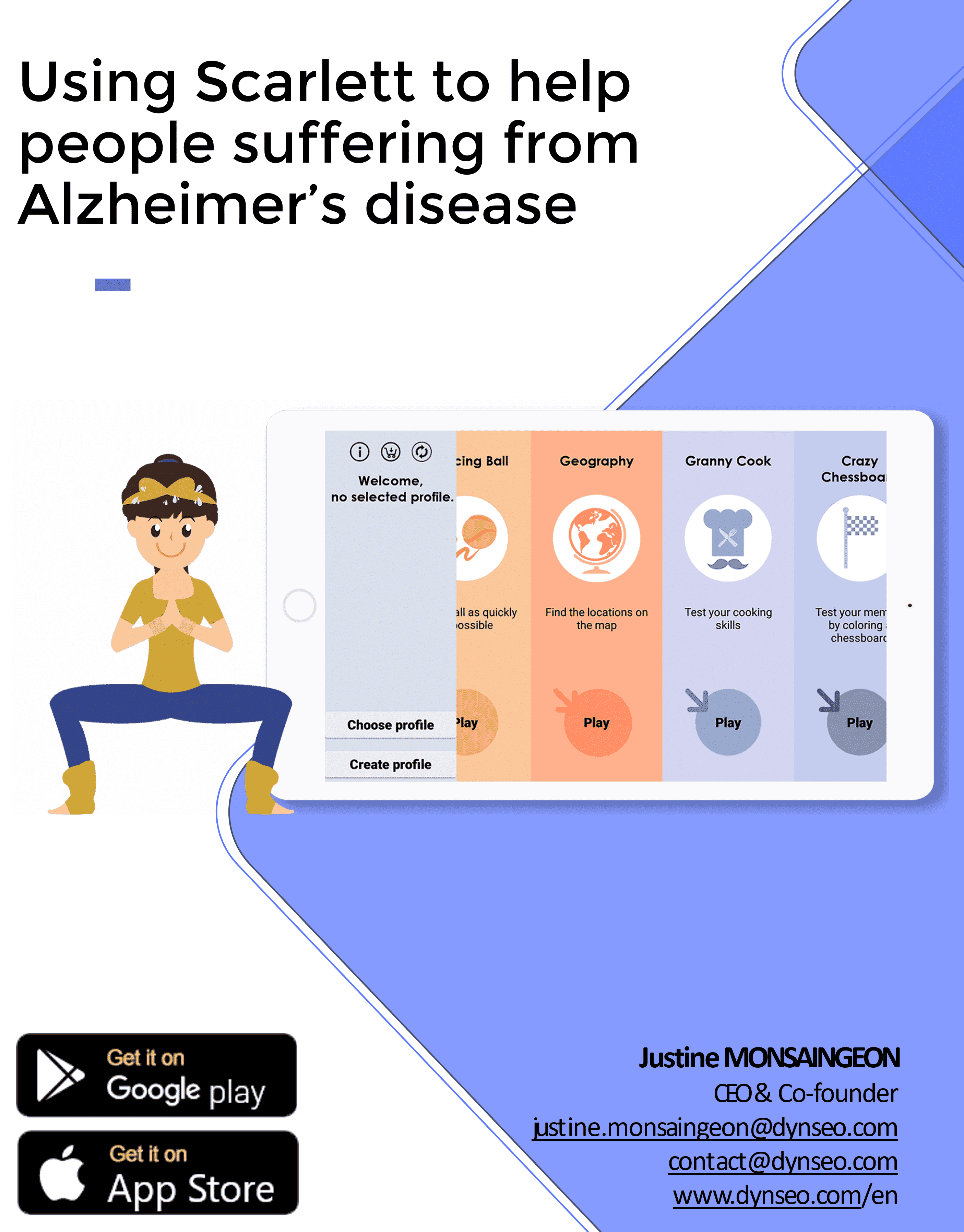Alzheimer’s disease is a progressive neurological disorder that primarily affects memory, thinking, and behavior. As we delve into the complexities of this condition, we recognize that it is not merely a matter of forgetfulness; it is a profound alteration in the way individuals perceive and interact with the world around them. The disease typically begins with mild memory loss, which can escalate to severe cognitive impairment, ultimately impacting daily functioning.
We often witness the emotional toll it takes on both patients and their families, as the gradual decline in cognitive abilities can lead to confusion, frustration, and a sense of loss. Understanding Alzheimer’s requires us to empathize with those affected, acknowledging the challenges they face as they navigate a reality that becomes increasingly difficult to comprehend. Memory loss in Alzheimer’s patients is not uniform; it varies from person to person.
Some may struggle to recall recent events, while others may find it challenging to recognize familiar faces or places. This variability can make it difficult for caregivers and loved ones to provide appropriate support. As we explore the intricacies of memory loss associated with Alzheimer’s, we must also consider the emotional and psychological aspects of the disease.
The fear of losing one’s identity and independence can be overwhelming for patients, leading to feelings of isolation and despair. By fostering a deeper understanding of Alzheimer’s disease and its impact on memory, we can better equip ourselves to support those affected and advocate for effective interventions.
The Role of Therapeutic Apps in Supporting Memory Retention
In recent years, therapeutic apps have emerged as valuable tools in the fight against memory loss associated with Alzheimer’s disease. These digital resources offer innovative ways to engage patients cognitively, providing stimulating activities that can help maintain and even improve memory retention. As we embrace technology in our daily lives, we recognize its potential to enhance the quality of care for individuals living with Alzheimer’s.
Therapeutic apps can serve as a bridge between patients and caregivers, facilitating communication and interaction while offering tailored exercises designed to challenge cognitive abilities. The Scarlett app for seniors exemplifies how technology can be harnessed to support memory retention in Alzheimer’s patients. By incorporating games and activities that stimulate various cognitive functions, Scarlett provides an engaging platform for users to practice their memory skills in a fun and interactive manner.
As we explore the role of therapeutic apps, we must also consider their accessibility and ease of use. Many apps are designed with user-friendly interfaces that cater specifically to seniors, ensuring that they can navigate the technology without frustration. By integrating these tools into daily routines, we can create an environment that fosters cognitive engagement and promotes a sense of accomplishment among Alzheimer’s patients.
Features and Functions of Therapeutic Apps for Alzheimer’s Patients

Therapeutic apps designed for Alzheimer’s patients come equipped with a variety of features aimed at enhancing cognitive function and memory retention. One of the most significant aspects of these apps is their ability to provide personalized experiences tailored to individual needs. For instance, Scarlett offers a range of brain games that target specific cognitive skills such as memory recall, attention, and problem-solving.
By allowing users to select activities that resonate with their interests and abilities, these apps create a sense of agency and empowerment, which is crucial for maintaining motivation. In addition to personalized content, many therapeutic apps incorporate progress tracking features that enable users and caregivers to monitor improvements over time. This functionality not only provides valuable insights into cognitive performance but also fosters a sense of achievement as users witness their progress.
Furthermore, these apps often include reminders and prompts that help users stay engaged with their activities, ensuring that they remain consistent in their practice. As we explore the features and functions of therapeutic apps for Alzheimer’s patients, it becomes clear that these tools are designed not only to challenge cognitive abilities but also to enhance overall well-being by promoting social interaction and emotional connection.
Tips for Incorporating Therapeutic Apps into Daily Care Routines
Integrating therapeutic apps into daily care routines can significantly enhance the quality of life for Alzheimer’s patients. To begin this process, we should establish a consistent schedule that incorporates app usage into daily activities. By setting aside specific times for engaging with therapeutic apps, we create a structured environment that encourages routine and familiarity.
This consistency can help alleviate anxiety associated with uncertainty while providing patients with a sense of stability in their day-to-day lives. Moreover, it is essential to approach app usage with patience and encouragement. As caregivers, we must recognize that learning new technology can be challenging for some individuals, particularly those experiencing cognitive decline.
By offering support and guidance during app interactions, we can foster a positive experience that promotes engagement rather than frustration. Additionally, we should consider incorporating social elements into app usage by inviting family members or friends to join in on activities. This collaborative approach not only enhances the enjoyment of the experience but also strengthens social bonds, which are vital for emotional well-being.
Case Studies: Success Stories of Using Therapeutic Apps for Memory Retention
As we examine the impact of therapeutic apps on memory retention among Alzheimer’s patients, numerous success stories emerge that highlight their effectiveness. One such case involves an elderly woman named Margaret, who had been struggling with memory loss for several years. After her family introduced her to the Scarlett app, they noticed a remarkable improvement in her cognitive abilities over time.
Margaret began engaging with the app daily, participating in various brain games that challenged her memory and attention skills. Her family reported that she became more confident in her abilities and even started sharing her experiences with friends at her assisted living facility. Another inspiring case involves a group of seniors at a local community center who participated in a pilot program utilizing therapeutic apps designed for Alzheimer’s patients.
The program incorporated both Scarlett and other cognitive training tools, allowing participants to engage in friendly competitions while working on their memory skills. Over several months, the group demonstrated significant improvements in cognitive function as measured by standardized assessments. Participants expressed enthusiasm about their progress and formed new friendships through shared experiences, illustrating how therapeutic apps can foster social connections while enhancing cognitive health.
Potential Challenges and Limitations of Using Therapeutic Apps for Alzheimer’s Patients

Therapeutic apps hold great promise for improving the quality of life for Alzheimer’s patients, but it is crucial to address the challenges and limitations that may arise during their implementation. By understanding these hurdles, caregivers and healthcare providers can create strategies to maximize the benefits of these digital tools.
Challenges Associated with Therapeutic Apps
- Technological Proficiency:
- Many Alzheimer’s patients, particularly older individuals, may struggle with navigating smartphones or tablets.
- This difficulty can lead to feelings of frustration, discouragement, or eventual disengagement from the app.
- Solution: Caregivers should provide hands-on guidance, simplified instructions, and consistent support to build confidence in using these tools.
- Quality and Reliability of Apps:
- Not all apps are developed based on robust scientific research, which can result in tools that fail to deliver meaningful benefits.
- Some apps may overlook the specific needs of Alzheimer’s patients, offering generalized cognitive training that does not target memory, language, or reasoning challenges effectively.
- Solution: Thoroughly vet apps by looking for those supported by clinical research or recommendations from healthcare professionals.
- Overreliance on Digital Solutions:
- While apps can complement therapy, relying on them exclusively may reduce opportunities for meaningful social interactions or traditional therapeutic approaches.
- Alzheimer’s care requires a multifaceted approach that includes physical activity, social connection, and emotional support.
- Solution: Balance digital tools with in-person interactions to ensure a well-rounded care plan.
- Accessibility and Cost:
- Some apps require expensive subscriptions or high-specification devices that may not be accessible to all patients.
- Solution: Seek out free or low-cost apps that are compatible with older devices and ensure they are user-friendly.
Practical Limitations of Therapeutic Apps
- Attention Span and Cognitive Decline:
Alzheimer’s patients may find it difficult to remain engaged with apps for extended periods, limiting their effectiveness. - Need for Supervision:
Many apps require a caregiver’s presence to guide the patient, which might increase the workload for already burdened caregivers.
Key Considerations for Successful Integration
- Ease of Use: Choose apps with intuitive interfaces and clear instructions, ideally tailored to seniors or those with cognitive impairments.
- Customization: Opt for apps that allow personalization to match the patient’s cognitive abilities and progress over time.
- Monitoring and Feedback: Look for apps that track progress and provide feedback to caregivers, enabling better management of the patient’s therapy.
Future Developments and Research in Therapeutic Apps for Alzheimer’s Patients
The landscape of therapeutic apps for Alzheimer’s patients is continually evolving as researchers explore new ways to enhance cognitive function through technology. Future developments may include more sophisticated algorithms that adapt activities based on individual performance levels, providing personalized challenges that evolve over time. This adaptability could lead to more effective interventions tailored specifically to each patient’s unique cognitive profile.
Moreover, ongoing research into the integration of virtual reality (VR) and augmented reality (AR) technologies holds promise for creating immersive experiences that engage multiple senses while stimulating cognitive function. These advancements could revolutionize how we approach memory retention in Alzheimer’s patients by offering dynamic environments that encourage exploration and interaction. As we look ahead, it is essential for us to remain informed about emerging trends in therapeutic app development so that we can advocate for innovative solutions that enhance the lives of those affected by Alzheimer’s disease.
Resources and Support for Caregivers and Patients Using Therapeutic Apps
As caregivers navigating the complexities of supporting Alzheimer’s patients, it is vital for us to access resources and support systems that can enhance our understanding and effectiveness in utilizing therapeutic apps. Numerous organizations provide educational materials, workshops, and online forums where caregivers can share experiences and strategies related to app usage. By connecting with others facing similar challenges, we can gain valuable insights into best practices for integrating technology into care routines.
Additionally, many therapeutic app developers offer customer support services designed specifically for caregivers and users alike. These resources can assist us in troubleshooting technical issues or answering questions about app features and functionalities. By leveraging these support systems, we can ensure that our loved ones receive the maximum benefit from therapeutic apps while fostering an environment conducive to cognitive engagement and emotional well-being.
Ultimately, our commitment to exploring innovative solutions like therapeutic apps reflects our dedication to improving the quality of life for individuals living with Alzheimer’s disease and their families.
For those interested in the integration of technology in healthcare, particularly in the management of Alzheimer’s disease, a related article worth reading discusses the roles of healthcare professionals in caring for Alzheimer’s patients. This article provides insights into how therapeutic apps can be part of a broader care strategy. You can read more about it by visiting Healthcare Professionals Managing Alzheimer’s Patients. This resource is valuable for understanding the multidisciplinary approach required in Alzheimer’s care, complementing the use of therapeutic apps to support memory retention.



